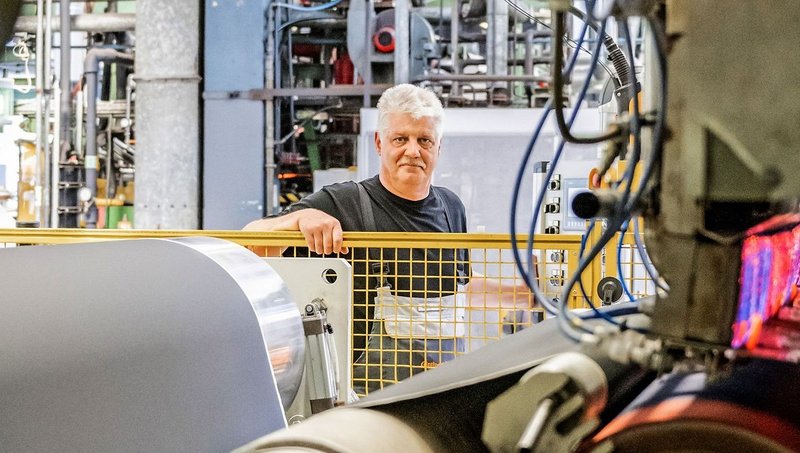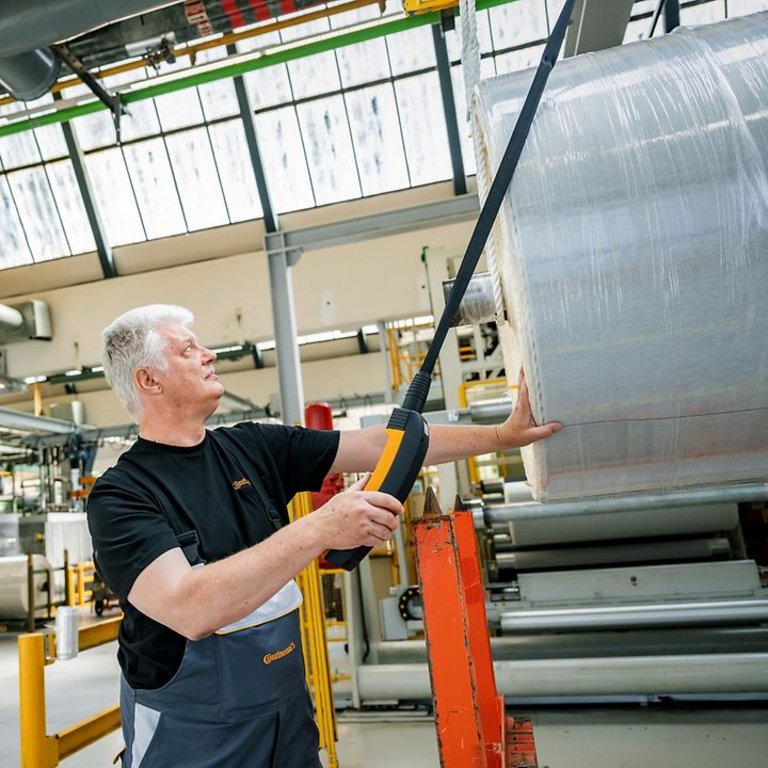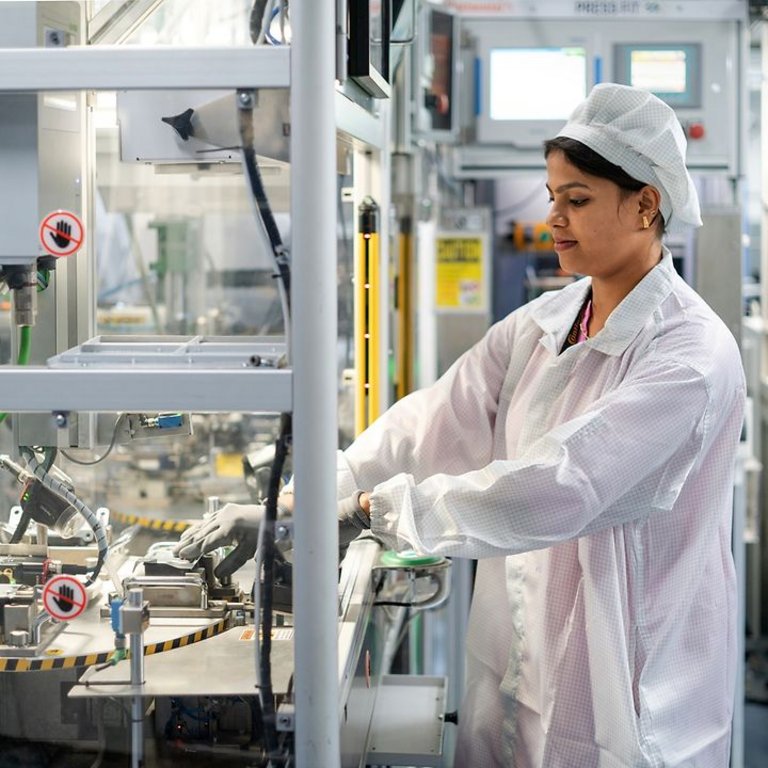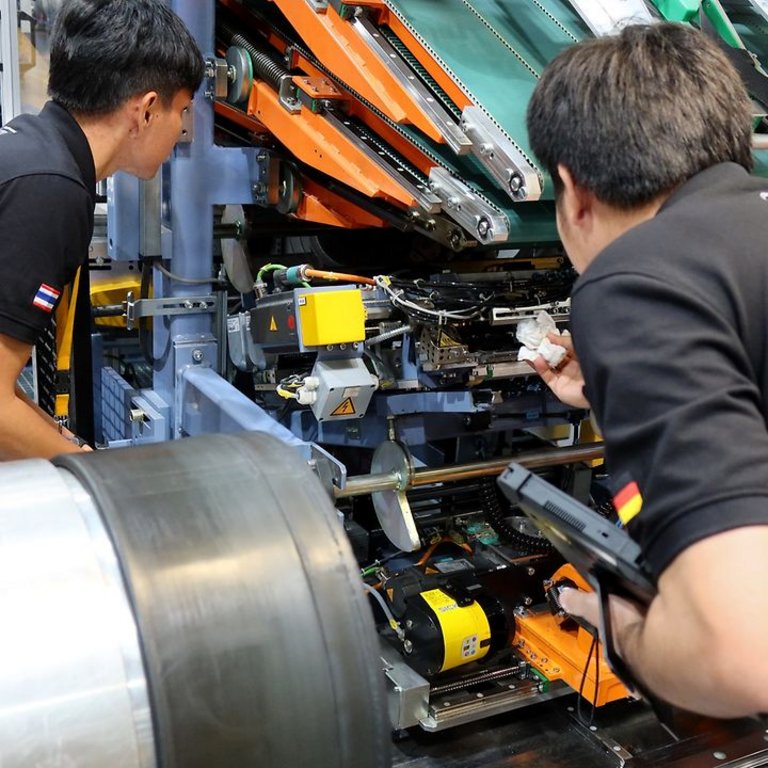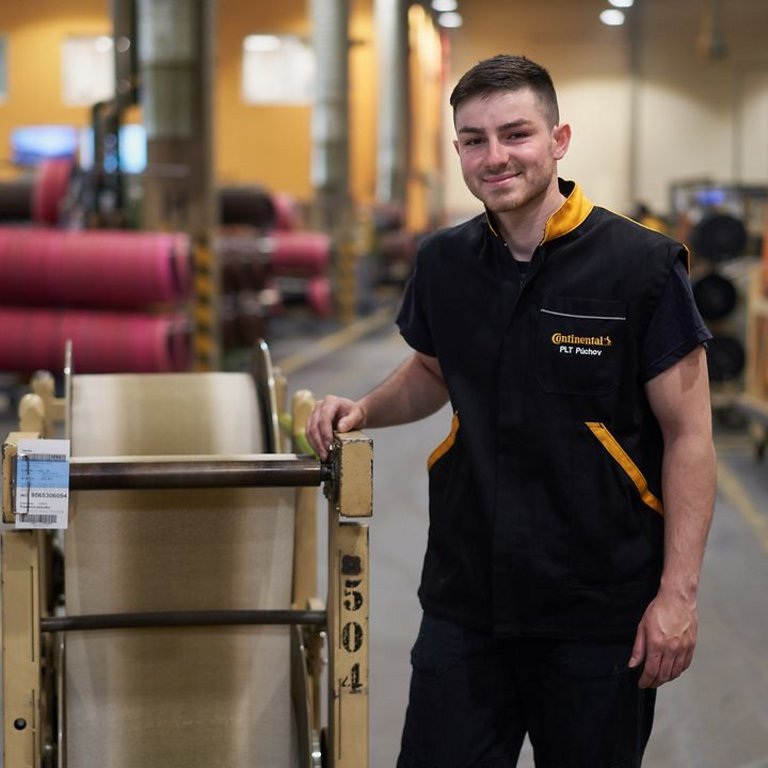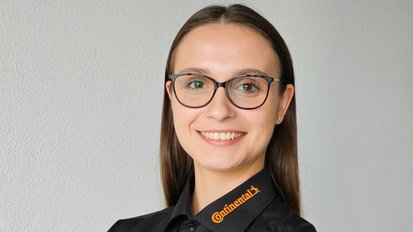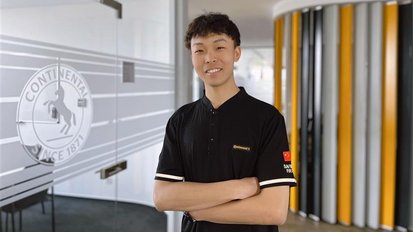A Heart for Machines
A Reportage from Germany, India and Slovakia
Operating machines are the basis for smooth running production. This is why more and more employees in the production process take responsibility for the technology. Some people develop a special relationship with their work equipment.
Shortly after the beginning of the early shift in Hanover: Machine operator Andreas Ottenberg is standing at the embossing plant KBK11 and checks the settings of the machine during operation. "Everything is perfect - even the inlet temperature in the pretension is stable at 200 degrees Celsius", says the 58-year-old with a look at the computer screen that depicts the production process.
"The modern KBK11 is something like my machine and more than just a production unit for me."
Andreas Ottenberg, machine operator
With its modern plant, Ottenberg is shaping plastic films for vehicle interiors at the ContiTech plant at Surface Solutions (SSL). The finished product Acella artificial leather covers dashboards, side panels and seats. Every automobile manufacturer wants to use certain individual grain patterns. In order to bring these grain surfaces onto the material, the films in the stamping system must be heated to 190 to 220 degrees and softened. "I supervise the production process based on my process parameters. In doing so, I ensure that the requirements are met at all times," says Ottenberg. He then checks the quality of the final product. "The embossing system meets particularly high quality requirements. The machine is practically the last stop before the product goes to the customer," emphasizes Ottenberg.
Goal: non-disruptive operation
Andreas Ottenberg has served the KBK11 since 2014. He has a special relationship with the plant - and was instrumental in its design and construction. His many years of experience with the old embossing machine KBK8 Gold was worth it. "The modern KBK11 is something like my machine and more than just a production facility for me," he emphasizes. Therefore, it is important to him that the system works without disturbance during 24-hour operation. He therefore regularly exchanges with the maintenance teams and promptly informs them if they notice anything. "However, he himself takes care of: Ottenberg, for example, cleans the heating salt every week and feeds the camps. "We have clearly distributed these tasks in the team."
Technology is fascinating
For Deeksha Shetty, smaller maintenance tasks are part of everyday production. The 27-year-old mechanical engineer at the Automotive plant in Bommasandra, Bangalore, uses an injection system to assemble circuit boards and enclosures for airbag control modules. At another plant, it examines the coating of printed circuit boards under ultraviolet light. "This technology fascinates me because it is easy to use and provides high quality," says Shetty. "I care about a good condition of the facilities. I want them to work properly and we can use them for a long time." She regularly takes a checklist and checks the press system according to a standardized procedure. New colleagues are also training them in this task.
Preventive maintenance instead of fire fighting
Like Deeksha Shetty and Andreas Ottenberg, more and more machine engineers are taking responsibility for the maintenance of production facilities at Continental. At Tires there is the "" initiative (see also "2 facts on the subject"). As part of the initiative, our colleagues at the machines support the maintenance teams," says Darren Kidney, who, as head of maintenance and spare parts, has been accompanying the initiative for a long time. "This way we can fix problems before they have a negative impact on production." Both areas benefit from closing the gap: Maintenance staff are relieved of routine tasks and can concentrate on core technical tasks. Production, in turn, becomes even more reliable if machine operators are careful to ensure that their machines are in good condition. The first results confirm expectations: Tire plants report that Care&Inspect extends machine run times, reduces downtime and waiting times, and increases overall plant efficiency. Care&Inspect's production and maintenance personnel take responsibility for the state of the machines, strengthening cooperation between them - which in turn speeds up and simplifies the processes.
Miroslav Weiss can confirm this. The 25-year-old is manufacturing radial tires for passenger cars at the Puchov tire plant in Slovakia. "I like my work on the tire construction machine," he says. "The system is well designed. It helps me to make a first-class tire out of numerous components." In order to maintain this, he and his colleagues have been applying the maintenance standards of Care&Inspect since 2021. "And if I still see a defective product or if it is working in the production process, I will report it immediately," emphasizes Weiss. "Then I can always rely on the quick help of the maintenance team."
